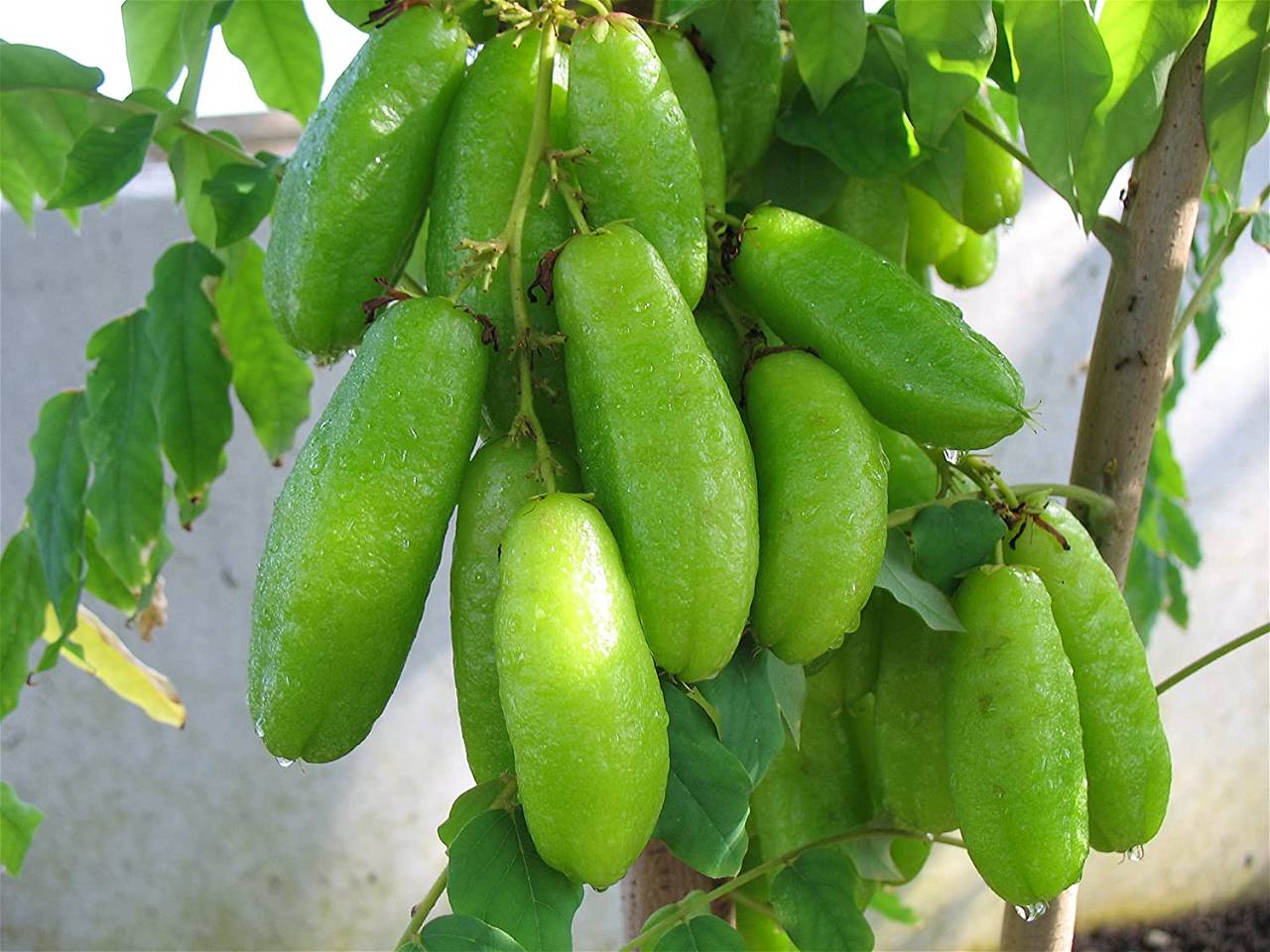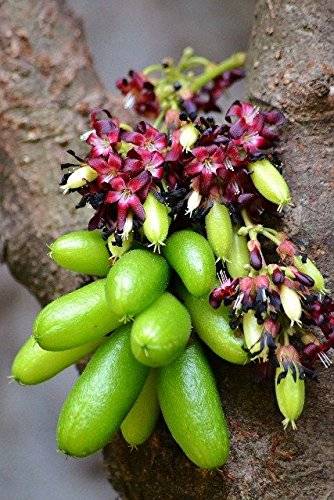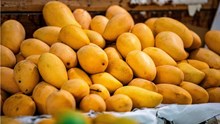
Bilimbi is a small, long lived, perennial and attractive tree, which grows about 16 to 33ft. in height. The bilimbi plant is cultivated widely and freely escaping along with the rivers and in the secondary vegetation. The plant grows on a wide range of the soil from sandy to limestone soil but it does best on rich, sandy loan or clayey loam with plenty of organic matter.
The bilimbi leaves are alternate and are densely crowded at the top of the branches imparipinnate, 30 to 60 cm long with 11 to 37 alternate or sub opposite leaflets, ovate or oblong to lanceolate with round base & acuminate tip, 2 to 10 cm long by 1.25 to 1.5 cm wide, downy and medium green on upper surface and pale on the underside.
The scientific name of Bilimbi is Averrhoa bilimbi, and it is also known as bilimbi, cucumber tree of genus Averrhoa family Oxalidaceae. It is also a close relative of carambola tree and is a well-known fruit that is found mostly in South East Asian countries, but now it is also found in the tropics. This is a fruit, which is widely cultivated throughout Malaysia, Myanmar, Maldives, Philippines, Indonesia, India and Central & South America.
Also read: Amazing Health Benefits of Ambarella Fruit for Skin, Hair and Overall Health
It has different names in different languages, and some of them are: Bilimbi Tree, Bilimbi, Cucumber Tree, Bilimbi Plum, Tree-sorrel, Belimbing, asam and pickle.
The bilimbi plant is commonly used as herbal plant for the treatment purpose. The leaves, fruit and flower of bilimbi plant as a whole is used for many purposes.
The leaves of the plant are used to treat the abdominal pain, rheumatism and mumps.
The fruit of the plant is used to treat the ulcers, prevent diabetes, whooping cough and eliminate acne.
The flower of the plant is used for treating mouth sores and cough.

Health Benefits of Bilimbi Plant
Below are the Health Benefits of Bilimbi Fruit
Helps in Managing Hypertension
The trove of antioxidants & proteins in bilimbi fruit makes it an amazing natural remedy for lowering the high blood pressure/hypertension. Consuming the broth of bilimbi fruit helps in bringing down the elevated blood pressure in the blood vessels, by widening the veins, capillaries, arteries and relaxing the cardiac muscles.
Regulates the Blood Sugar Level
The bilimbi fruits controls the blood sugar level by insulin activity of body. The rich content of dietary fibers and flavonoids in the bilimbi fruit helps to prevent the sudden spikes in the blood glucose post meal levels, therefore, the fruit helps in keeping the diabetes symptoms in check.
Cures Cough & Cold
The presence of vitamin C in the bilimbi plant provides wonderful benefits for functioning of the immune system and in turn it also treats cough & cold due to the seasonal changes & allergies, it bolsters the defense mechanisms of the body.
Treats Hemorrhoids
The bilimbi plant comprises anti-inflammatory elements namely: terpenes & tannins. It helps to lessen the swelling in the veins of anus & rectum, a condition known as hemorrhoids. Also, applying the extract of the bilimbi plant leaf on the affected area immediately reduces the pain, bleeding and inflammation rectifying hemorrhoids.
Fortifies Bone Health
The bilimbi plant is loaded with a good amount of calcium, which improves the bone density & maintains the structural integrity of skeleton in the body. Eating the extracts of bilimbi, and adding it in the meal by infusing the flavor to curries, dals and soups helps in making the bones tough and makes them even more strong than it was before.
















